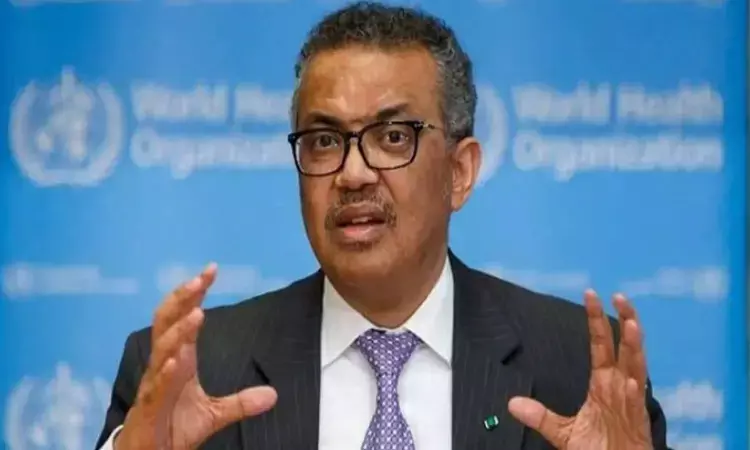- Home
- Medical news & Guidelines
- Anesthesiology
- Cardiology and CTVS
- Critical Care
- Dentistry
- Dermatology
- Diabetes and Endocrinology
- ENT
- Gastroenterology
- Medicine
- Nephrology
- Neurology
- Obstretics-Gynaecology
- Oncology
- Ophthalmology
- Orthopaedics
- Pediatrics-Neonatology
- Psychiatry
- Pulmonology
- Radiology
- Surgery
- Urology
- Laboratory Medicine
- Diet
- Nursing
- Paramedical
- Physiotherapy
- Health news
- Fact Check
- Bone Health Fact Check
- Brain Health Fact Check
- Cancer Related Fact Check
- Child Care Fact Check
- Dental and oral health fact check
- Diabetes and metabolic health fact check
- Diet and Nutrition Fact Check
- Eye and ENT Care Fact Check
- Fitness fact check
- Gut health fact check
- Heart health fact check
- Kidney health fact check
- Medical education fact check
- Men's health fact check
- Respiratory fact check
- Skin and hair care fact check
- Vaccine and Immunization fact check
- Women's health fact check
- AYUSH
- State News
- Andaman and Nicobar Islands
- Andhra Pradesh
- Arunachal Pradesh
- Assam
- Bihar
- Chandigarh
- Chattisgarh
- Dadra and Nagar Haveli
- Daman and Diu
- Delhi
- Goa
- Gujarat
- Haryana
- Himachal Pradesh
- Jammu & Kashmir
- Jharkhand
- Karnataka
- Kerala
- Ladakh
- Lakshadweep
- Madhya Pradesh
- Maharashtra
- Manipur
- Meghalaya
- Mizoram
- Nagaland
- Odisha
- Puducherry
- Punjab
- Rajasthan
- Sikkim
- Tamil Nadu
- Telangana
- Tripura
- Uttar Pradesh
- Uttrakhand
- West Bengal
- Medical Education
- Industry
Exodus of healthcare workers from poor countries worsening: WHO

Geneva: Poorer countries are increasingly losing healthcare workers to wealthier ones as the latter seek to shore up their own staff losses from the COVID-19 pandemic, sometimes through active recruitment, the World Health Organization said on Tuesday.
The trend for nurses and other staff to leave parts of Africa or Southeast Asia for better opportunities in wealthier countries in the Middle East or Europe was already underway before the pandemic but has accelerated since, the U.N. health agency said, as global competition heats up.
"Health workers are the backbone of every health system, and yet 55 countries with some of the world's most fragile health systems do not have enough and many are losing their health workers to international migration," said Tedros Adhanom Ghebreyesus, the WHO director-general.
He was referring to a new WHO list of vulnerable countries which has added eight extra states since it was last published in 2020. They are: Comoros, Rwanda, Zambia, Zimbabwe, East Timor, Laos, Tuvalu and Vanuatu.
Jim Campbell, director of the WHO's health workforce department, told journalists safeguards for countries on the WHO list were important so they "can continue to rebuild and recover from the pandemic without an additional loss of workers to migration".
Some 115,000 healthcare workers died from COVID around the world during the pandemic but many more left their professions due to burnout and depression, he said. As a sign of the strain, protests and strikes have been organised in more than 100 countries since the pandemic began, he added, including in Britain and the United States.
"We need to protect the workforce if we wish to ensure the population has access to care," said Campbell.
Asked which countries were attracting more workers, he said wealthy OECD countries and Gulf states but added that competition between African countries had also intensified.
The WHO says it is not against migration of workers if it was managed appropriately. In 2010, it released a voluntary global code of practice on the international recruitment of health personnel and urges its members to follow it.
Kajal Rajput joined Medical Dialogues as an Correspondent for the Latest Health News Section in 2019. She holds a Bachelor's degree in Arts from University of Delhi. She manly covers all the updates in health news, hospitals, doctors news, government policies and Health Ministry. She can be contacted at editorial@medicaldialogues.in Contact no. 011-43720751


